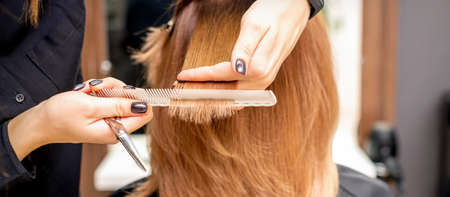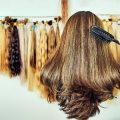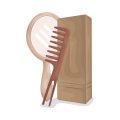1. Understanding Hair Texture Diversity Across the States
When it comes to hair, there’s no one-size-fits-all—especially in the United States, where diversity is woven into the fabric of every community. From silky straight strands on the West Coast to bouncy curls in the South, hair texture varies widely across regions. Genetics play a big role, but local culture and even climate influence how people care for their hair.
Genetic Roots: Why Hair Texture Varies
America’s melting pot of backgrounds means you’ll encounter an amazing range of hair textures. In urban areas with rich immigrant histories like New York City or Los Angeles, you’ll find everything from fine, pin-straight Asian hair to thick, coily African-American textures and wavy European locks—all sometimes in one classroom or workplace! Genetics set the stage for this variety, but regional beauty trends often shape how people style and treat their hair.
Regional Hair Textures at a Glance
| Region | Common Hair Textures | Cultural Influences |
|---|---|---|
| Northeast (e.g., New York, Boston) | Straight, Wavy, Curly | Diverse immigrant population brings global styles; professional settings favor sleek looks |
| South (e.g., Atlanta, Houston) | Curly, Coily | Strong African-American heritage; heat-friendly protective styles are popular |
| Midwest (e.g., Chicago, Minneapolis) | Straight, Wavy | European roots; practical low-maintenance styles suit busy lifestyles |
| West Coast (e.g., LA, Seattle) | Straight, Wavy, Beachy Curls | Influenced by surf/skate culture; effortless “undone” looks are trendy |
| Southwest (e.g., Phoenix, Albuquerque) | Straight, Slightly Wavy | Latinx and Native American heritage; braids and long layers are common |
The Role of Local Culture in Haircare Choices
Cultural identity shapes more than just appearance—it influences what products people use and which styling methods they trust. For example, natural hair movements in the South encourage embracing curls and coils with moisturizing creams and oils, while fast-paced city life in the Northeast often calls for straightening tools and frizz-control serums. On the West Coast, lightweight sprays and salt-infused products help achieve that signature “beach waves” vibe. No matter where you live in the U.S., your local culture and community likely have a say in your daily hair routine.
2. How Climate Shapes Your Hair’s Needs
Ever wonder why your hair acts totally different when you’re visiting Arizona compared to a summer in Miami? The answer often lies in the climate. Across the U.S., local weather can have a huge impact on how your hair looks, feels, and behaves. Whether you’re dealing with dry desert air, sticky coastal humidity, or chilly mountain breezes, understanding how regional climates affect your hair is key to finding products and routines that actually work for you.
Regional Climates and Their Effects on Hair
Let’s break down what happens to your hair in different parts of the country:
| Region | Climate Type | Common Hair Concerns | Moisture Retention |
|---|---|---|---|
| Southwest (e.g., Arizona, Nevada) | Dry Desert | Frizz, breakage, brittle strands | Low – moisture evaporates quickly |
| Southeast (e.g., Florida, Louisiana) | Humid Coastal | Puffy hair, limp curls, oily scalp | High – but prone to frizz and heaviness |
| Northeast (e.g., New York, Massachusetts) | Cold & Seasonal | Static, dryness in winter; frizz in summer | Moderate – changes with seasons |
| Pacific Northwest (e.g., Washington, Oregon) | Mild & Damp | Flat roots, lack of volume, frizz | High – scalp may feel oily faster |
| Mountain West (e.g., Colorado, Utah) | High Altitude & Dry Air | Brittleness, color fading, split ends | Low – hair dries out quickly |
The Science: Why Climate Matters for Hair Health
Your hair is like a sponge—it absorbs and loses water depending on the air around it. In dry regions like the Southwest or Mountain West, low humidity means less moisture in the air for your hair to soak up. This often leads to dryness and more breakage. On the flip side, if you live by the coast or in the South where it’s humid year-round, all that extra moisture can make your hair swell up and get frizzy fast—especially if you have naturally curly or wavy hair.
The Bottom Line for Your Hair Routine
No matter where you live in the U.S., knowing how climate affects your hair can help you pick smarter styling products and habits. That way, you’ll keep your locks looking their best—whether you’re battling desert dryness or Gulf Coast humidity!
![]()
3. Go-To Styling Products by Region
When it comes to haircare, the right styling products can make all the difference—especially when you factor in your region’s climate and local trends. Let’s break down the most popular styling products and ingredients from coast to coast, so you can keep your hair looking its best no matter where you live.
Northeast: Fighting Frizz & Humidity
The Northeast is known for its unpredictable weather, with humid summers and dry, cold winters. Locals tend to reach for products that tackle frizz and provide moisture without weighing hair down.
| Popular Products | Key Ingredients | Why Locals Love It |
|---|---|---|
| Anti-frizz serums | Argan oil, silicone blends | Smooths flyaways and adds shine even on muggy days |
| Hydrating leave-in conditioners | Shea butter, coconut oil | Keeps hair moisturized during harsh winters |
| Lightweight mousse | Aloe vera, panthenol | Adds volume without making hair sticky or heavy |
South: Embracing Curls & Heat Protection
The South brings heat, humidity, and plenty of sun. Here, styling routines focus on protecting strands from damage and celebrating natural curls and waves.
| Popular Products | Key Ingredients | Why Locals Love It |
|---|---|---|
| Curl creams & gels | Coconut oil, shea butter, flaxseed extract | Defines curls while keeping them soft—not crunchy or frizzy |
| Heat protectant sprays | Vitamin E, keratin proteins | Shields hair from sun exposure and hot styling tools year-round |
| No-rinse detangling sprays | Aloe vera, silk proteins | Makes combing through thick or textured hair a breeze after a day outdoors |
Midwest: Nourishing for All Seasons
The Midwest experiences everything from icy winters to steamy summers. Residents look for versatile products that hydrate, protect, and help manage static electricity caused by fluctuating temperatures.
| Popular Products | Key Ingredients | Why Locals Love It |
|---|---|---|
| Nourishing hair oils | Jojoba oil, avocado oil | Tames static in winter and repairs dryness in summer |
| Cream-based stylers | Cocoa butter, vitamin B5 | Adds moisture and control for straight or wavy styles |
| Multi-purpose styling balms | Mango butter, beeswax | Offers flexible hold for updos or sleek ponytails in any weather |
West: Lightweight & Beachy Solutions
The West Coast is all about laid-back vibes and effortless style. With drier climates in some areas and salty ocean air in others, locals prefer easy-going products that add texture without buildup.
| Popular Products | Key Ingredients | Why Locals Love It |
|---|---|---|
| Sea salt sprays | Sea salt, algae extracts | Create natural-looking beach waves for a California-cool effect |
| Dry shampoos | Rice starch, kaolin clay | Keeps roots fresh between washes—perfect for active lifestyles |
| Lighter oils & serums | Squalane, grapeseed oil | Add subtle shine without heaviness in arid or coastal environments |
The Takeaway: Know Your Region’s Favorites!
No matter where you call home in the U.S., understanding which styling products suit your local climate—and your hair’s unique texture—can help you achieve trend-forward looks with less fuss. Whether you’re taming frizz in New York City or rocking beachy waves in Los Angeles, there’s a go-to product waiting to transform your routine.
4. Expert Tips for Adapting Your Routine
Personalized Advice from U.S. Hair Stylists
Across America, hair stylists know that no two heads of hair—or climates—are exactly alike. To get your best hair days, it’s smart to match your routine to both your texture and where you live. Here’s how pros suggest you customize your care.
Know Your Hair, Know Your Climate
| Region | Climate Challenges | Common Hair Textures | Stylist-Recommended Tips |
|---|---|---|---|
| Southeast (Miami, Atlanta) | High humidity, frequent rain | Curly, wavy, thick |
|
| Southwest (Phoenix, Las Vegas) | Dry heat, intense sun | Straight, fine, medium-thick |
|
| Northeast (New York City, Boston) | Cold winters, dry indoor air, seasonal humidity shifts | Straight, wavy, all types |
|
| Pacific Northwest (Seattle, Portland) | Damp, rainy, mild temperatures | Fine, straight, wavy |
|
Your Action Plan: Pro-Approved Steps for Every Texture & Region
If You Have Curly Hair:
- Creams and gels lock in moisture and define curls—especially in humid zones like the South or Northeast summers.
- Pineapple your curls at night (loose ponytail on top) to maintain shape and avoid breakage.
If You Have Fine or Straight Hair:
- Mousse or lightweight volumizers boost body without residue—ideal for rainy or damp regions like the Pacific Northwest.
- Clarifying shampoo once a week helps remove buildup from styling products and city pollution.
If You Have Coily or Thick Hair:
- Deep-conditioning masks are your BFF in dry climates like the Southwest. Use weekly for best results.
- Braid-outs and twists help protect against wind and cold in northern states while keeping hair hydrated and strong.
Pro Tip: Always Adjust Seasonally!
The biggest secret? Change up your products as the weather shifts! Even within the same region, what works in winter may not work in summer. Listen to your hair—it’ll tell you what it needs most.
5. Cultural Influences on Regional Haircare Trends
From coast to coast, the way Americans care for and style their hair is deeply influenced by local culture, fashion trends, and lifestyle choices. Whether you’re strolling through the sun-drenched streets of Los Angeles or navigating the fast-paced avenues of New York City, each region’s unique vibe shapes its approach to haircare. Let’s explore how these cultural influences make hair routines as diverse as the cities themselves.
How Local Culture Shapes Hair Trends
In the U.S., iconic cities have become trendsetters when it comes to haircare. From Hollywood glamour to Southern charm, people draw inspiration from their environment, community values, and even local celebrities. Here are some examples:
| City/Region | Signature Look | Cultural Influence | Popular Products & Techniques |
|---|---|---|---|
| Los Angeles | Beachy Waves & Sun-Kissed Highlights | Laid-back, surf-inspired lifestyle | Sea salt sprays, leave-in conditioners, balayage coloring |
| New York City | Sleek Ponytails & Chic Bobs | Fast-paced urban life; high-fashion influence | Smoothing serums, dry shampoo, flat irons |
| Atlanta | Naturally Curly & Protective Styles | Strong embrace of natural hair movement; cultural pride | Curl creams, edge control gels, braiding techniques |
| Austin | Effortless Texture & Boho Braids | Music scene; creative self-expression | Texturizing sprays, lightweight oils, loose braids |
| Seattle | Smooth & Frizz-Controlled Styles | Mild, rainy climate; practical approach to beauty | Anti-frizz serums, moisture-locking shampoos, hats & beanies |
The Role of Fashion and Lifestyle in Haircare Choices
Cultural events, street style, and even music festivals contribute to ever-evolving regional hair trends. For example:
- Coachella in California: Sparkly hair accessories and colorful temporary dyes surge in popularity each spring.
- Southern Weddings: Elegant updos and polished curls are a staple for formal occasions.
- Urban Commutes: Quick-fix products like dry shampoo and easy-to-style cuts are favorites among busy city dwellers.
Diversity Drives Innovation in Haircare Products
The cultural mosaic of the U.S. means that brands continually innovate to meet the needs of different communities—whether that’s hydrating treatments for textured hair or climate-proof styling sprays for humid regions.
Your Hair, Your Story—Inspired by Your City
No matter where you live, your local culture gives you a unique canvas for self-expression through your hair. By paying attention to what’s trending around you and tailoring your routine accordingly, you can embrace both your individuality and your city’s signature style.
6. Hot Hairstyles Trending Across America
From Coast to Coast: The Styles Everyone’s Talking About
When it comes to hair, every region in the U.S. puts its own unique spin on what’s hot—thanks to local climate, culture, and hair texture trends. Whether you’re in the sunny South or breezy Pacific Northwest, here’s your quick guide to the most popular hairstyles right now and pro tips for nailing these looks at home.
Regional Hair Trends at a Glance
| Region | Trending Style | Key Features | DIY Styling Tips |
|---|---|---|---|
| Northeast (NYC, Boston) | Sleek & Straight Blowouts | Polished finish, middle part, subtle shine | Use anti-frizz serum and a paddle brush; finish with a cool shot from your dryer for extra sleekness. |
| Southeast (Atlanta, Miami) | Defined Curls & Volume | Bouncy curls, defined coils, humidity-proof hold | Apply curl cream on damp hair; diffuse dry with head upside down for extra lift. |
| Midwest (Chicago, Minneapolis) | Textured Lobs & Soft Waves | Shoulder-length cuts, effortless waves, tousled texture | Braid hair before bed for heatless waves; use sea salt spray for added texture in the morning. |
| Southwest (Dallas, Phoenix) | Low Maintenance Braids & Ponytails | Protective styles, high ponies, boho braids | Smooth edges with styling gel; wrap ponytail base with a strand of hair for a polished finish. |
| West Coast (LA, San Francisco) | Beachy Waves & Curtain Bangs | Loose waves, face-framing bangs, sun-kissed highlights | Twist sections of damp hair and let air-dry; style bangs with a round brush for soft volume. |
| Pacific Northwest (Seattle, Portland) | Natural Texture & Shag Cuts | Lived-in layers, natural movement, minimal styling | Add lightweight mousse for definition; scrunch hair while drying to boost body without frizz. |
Your At-Home Styling Cheat Sheet
- Sleek Styles: Always prep with a heat protectant and finish with shine spray.
- Curls: Hydration is key—use leave-in conditioners and avoid over-washing.
- Braids & Ponies: Secure with gentle elastics to prevent breakage; accessorize with trendy clips or scarves.
- Waves: Embrace imperfection! Messy is modern. Salt sprays are your best friend.
Pro Tip:
The right products make all the difference—look for formulas suited to your local climate and your unique hair texture to keep your style looking fresh all day long.


